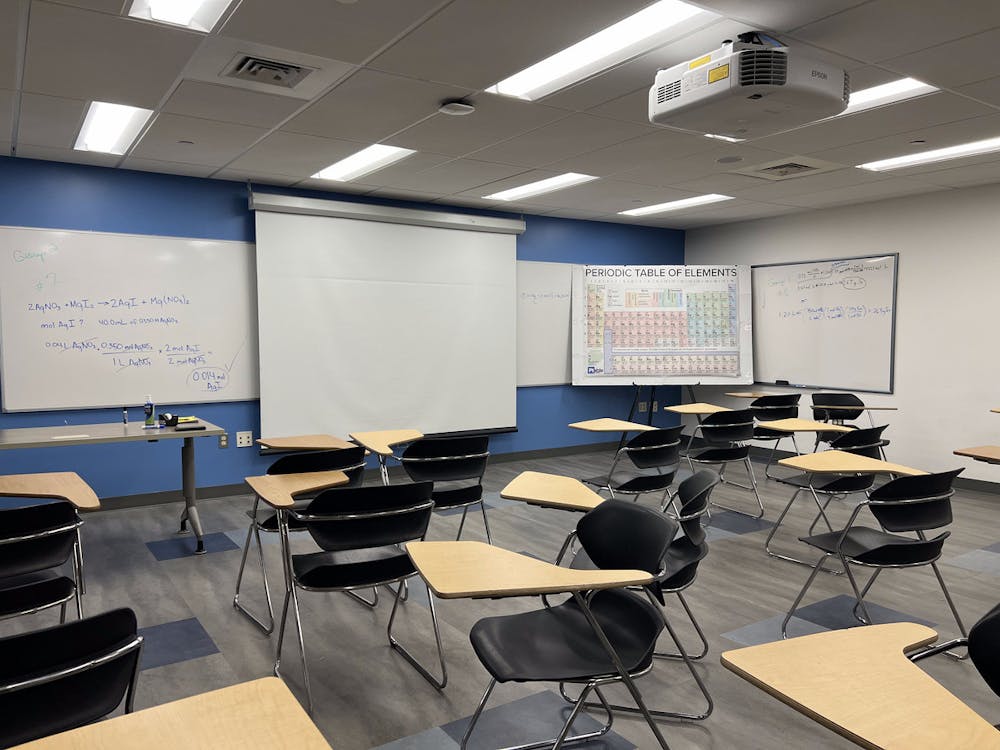By Rachel Lea
Correspondent
As students prepare to register for classes next semester, the School of Science is experiencing a significant faculty turnover. Many of its departments are losing professors, making both students and the remaining faculty worried about the upcoming semester and the school as a whole.
“It has been endemic,” said junior biology major Aayush Gandhi. “And it has been a consistent thing where [I have heard], ‘Oh, these guys are leaving’…in the three years I have been here.”
Sunita Kramer, the dean of the School of Science, told the Signal that seven professors from the School of Science have left the College since the start of the summer. Among them, two were retiring and another three were visiting professors only employed to teach at the College for a few years.
“I cannot comment further on personnel matters,” Kramer said. “But I can say the departures are unrelated and no positions have been eliminated.”
At least another four professors are set to leave this December, including biology professors Zaara Sarwar and Howard Reinert, and chemistry professors Lynn Bradley and David Hunt.
Hunt is one of the few professors in his department that teaches organic chemistry, a requirement for many science students. But after teaching for nearly nineteen years at the College, Hunt has decided to retire.
“I could stay here and teach forever,” Hunt said. “I love it here so much, but…I think it is time to give someone else a chance to do this.”
Personal circumstances seem to be the main drive for the turnover, but Hunt also believes the College’s finances are playing a role. Although professors continue to get paid, resources are also being diverted to create more graduate programs. The College hopes to attract and retain more students with these programs, allowing it to gain more revenue without raising tuition.
According to Hunt, however, many professors have expressed wariness towards teaching graduates. Not only will these programs add to their workload, but it will also take time away from undergraduates.
“I think the School — and the College at large — is losing its aim,” Hunt said. “Originally, it was supposed to be an example for an exclusively undergraduate education. Now faculty are going to have to teach courses to graduate students in addition to undergraduate students. You are taking away from one program to build the other one, and I think that is a mistake.”
This clash in beliefs may cause some professors to find work that aligns better with their preferences.
Additionally, there may be aspects of working in the School of Science itself that may be contributing to the rapid loss of faculty members. Sophomore chemistry major Vincent Artuso, for instance, noted the School struggles with communicating important information to professors. Not knowing what is going on at one’s own jobs may add additional stress to a professor’s life, and he may resign from his position to alleviate himself.
“[The professors] are probably just fed up with it,” Artuso said. “I know it definitely makes things harder for them. They do not know what is going on, and the students also do not know what is going on. So, it just makes it a stressful environment for everyone.”
Gandhi, meanwhile, believes the hiring process is too slow, and its lack of consistency in attracting and retaining quality professors has resulted in many failed trial semesters. The recent hiring freeze placed over the College has now halted this process entirely.
“We should not be giving permanent tenure tracks to any random professor who just walks through the door…,” Gandhi said. “But we should be putting more effort into hiring more and hiring people that we know can consistently perform.”
Regardless of the reason, the turnover will have ripple effects throughout the School of Science. Students doing independent research under a departing professor now have to find a new lab and start from scratch. According to Hunt, the number of classes available next semester may also be limited, adding additional stress to enrollment week.
“It does worry me a little,” Artuso said. “If there are less professors, there’s going to be less available options, and it will definitely put the [remaining] teachers under more stress.”
Furthermore, Gandhi worries that more classes will be assigned to adjunct professors to keep up with the needs of the students, causing the overall quality of the class to drop.
“There are notable exceptions,” said Gandhi. “But I do not think it is fair for students to always have a story of some bad adjunct.”
Despite these worries, Kramer emphasized to the Signal that the College is dedicated to ensuring that the needs of science students are met. Hunt also remains hopeful that the College will find its way as he prepares to retire to North Carolina.
“I do not think the College is in trouble because of the nature of the school itself,” explained Hunt. “It is, in my opinion, the best undergraduate school in the state of New Jersey, and I think it will continue to be that one way or another.”







